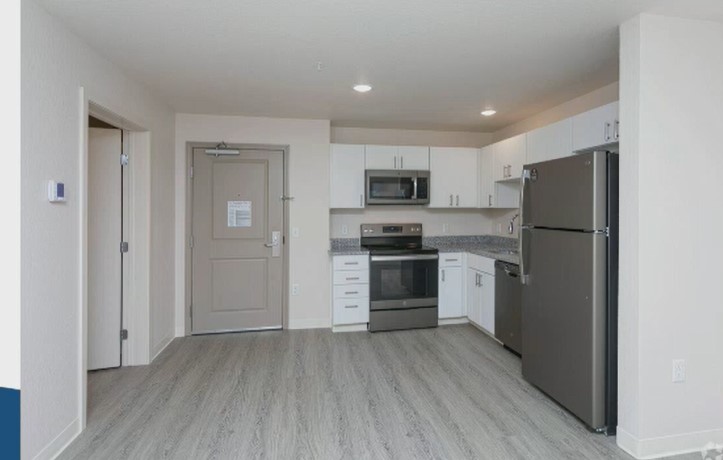Plymouth Ponders Zoning Change for Lodging ‘Unicorn’
There’s no other business like it in the city of Plymouth. That business is WaterWalk.
City officials call it a lodging “unicorn.”
WaterWalk was approved in 2018 under specially-crafted zoning regulations dubbed corporate lodging. At the time, the business sought to provide long-term term stays by providing apartment-like accommodations, but be licensed as a hotel. Stays were required to be at least seven days, but could last longer than a year. Of its two buildings, one offered furnished suites, the other semi-furnished.
But after opening in October 2020 following the onset of the COVID-19 pandemic, WaterWalk’s business model dramatically changed.
To stay viable, it had to operate like a hotel, offering stays of less than seven days, a violation of its conditional use permit agreement.
Now the city is being asked to change its zoning ordinance to accommodate WaterWalk, located in a business campus district at 10000 59th Ave N.
“There’s 220,000-square feet of vacant space in that business park right now,” said Steve LeVahn, franchise owner with Zion Partners LLC, speaking at the Sept. 24 Plymouth City Council meeting. “This is going to be another vacant building without the one- to seven-night stay. We won’t stay in business.”
Never in Compliance
City officials say WaterWalk has never been in compliance with its conditional use permit since it opened.
“Did it occur to you ask for permission, rather than later ask for forgiveness?” asked Plymouth City Council Member Julie Peterson at the Sept. 24 meeting.
“Again, our focus was on survival,” said LeVahn. “So I guess we really focused on that.”
City officials say if zoning is changed to help one business, it could have significant ramifications for hotels across the city.
“It is not up to the city to correct a bad business decision,” read notes by city staff in a PowerPoint presentation.
Chloe McGuire, the city’s planning and development manager, said the city has tried to find a compromise over the past year, such as making the business an extended-stay hotel, but said WaterWalk has yet to agree to such an arrangement.

Photo of inside WaterWalk’s semi-furnished units
Difference Between Corporate Lodging and Hotels
Hotels operate under different permitted agreements than the corporate lodging model in the city’s business campus zoning district.
Short-term stay hotels, for instance, are required to provide food service, which could include a restaurant. For extended-stay hotels, beds are required in each unit.
But for corporate lodging, none of those amenities are required.
McGuire said WaterWalk hasn’t agreed to provide beds in each room of its semi-furnished building. That would help put it in compliance as an extended-stay hotel.
Council members indicated they want to be fair to other hotels.
“You’ve asked also that the market is deciding this,” said Plymouth City Council Member Julie Pointner speaking to WaterWalk officials. “Well, if the market is deciding this, and it’s supposed to be operating as a hotel, then it should operate as a hotel. The implications of what you’re asking us of this text amendment goes further than just your corporate building. So that’s very frustrating to me.”
What’s Next?
The city council voted to direct city staff to prepare findings of fact in support of denying WaterWalk’s zoning change request. A final decision is expected at a future meeting.
It’s also possible a compromise could still be reached.
If the business continues to be non-compliant, the city council could ultimately revoke WaterWalk’s conditional use permit in the future.


